by Josephine Corcoran
It is International Women’s Day today, a day to celebrate women and remind everyone that gender equality is not the norm everywhere. There is still much more work to be done. While we making strides in women’s poetry, the focus has been on young female poets. The emerging older poets, poets who published their poetry 45 and over, have been missing from our celebrations. This article is celebrating that.
I wanted to write this article because I’ve noticed an absence of such women in recent news items charting poetry’s rise in popularity, yet, in recent years swathes of older women have published their debut collection (or pamphlet) which is surely something to celebrate and suggests that UK poetry is experiencing a Second Spring.
It’s no coincidence that the surge of poetry books published by women in their 40s, 50s, 60s, 70s and beyond has coincided with increased mainstream internet and social media use. Whereas some younger poets are turning to platforms like Instagram and YouTube to publish their work and build a following – and certainly older writers are starting to do this too – women who were already far too old to win awards for young writers when the internet became part of everyday life, view new technology as an empowering means of educating themselves. They’re reading more widely, gaining information, and networking with readers, other writers, editors, reviewers broadcasters and bloggers.
As recent articles about its popularity have commented, poetry is not what it used to be. Many of the women I spoke to grew up at a time when most of the poets they studied at school or university were white, male and middle class. A similar demographic was reflected in poetry publishing, magazine editing and arts coverage in print and broadcast media. While still not wholly liberated from such a narrow stronghold, the internet has opened new avenues for new voices and diversified the range of poetry available to read, view and hear. Social media provides a means of communicating directly with editors and publishers, as well as discovering and responding to submissions and development opportunities. Regardless of where your home town is and who you knew at school the publishing industry suddenly becomes more accessible. Online courses, workshops, livestreams and recorded poetry readings and podcasts – often provided free of charge – are readily available. Women are doing it for themselves, establishing new presses and creating online spaces to publish their own and others’ work, as well as finding ways to use new technologies for creative play extending their creative practice.
Here are a dozen poets for you to discover, mostly published by independent UK presses, who, in various stages of their later life, have found a place for themselves in the poetry world.
This International Women’s day, lets celebrate a New Oldish Poets Society.
Kadija Sesay
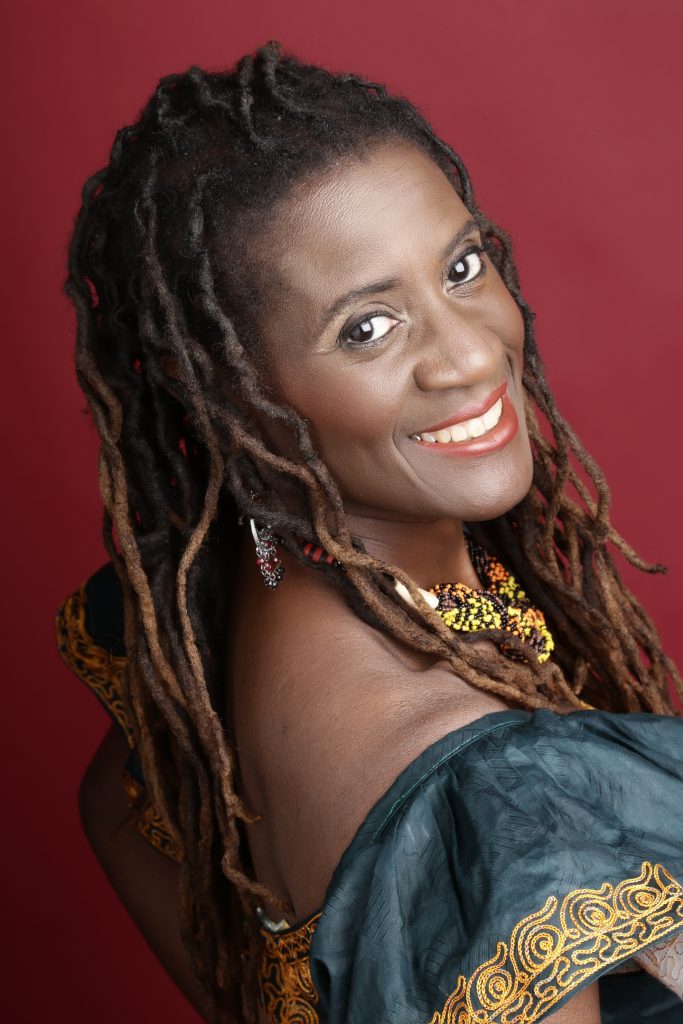
British/African writer and literary activist Kadija Sesay published her debut poetry collection as she approached the age of 50, after spending 25 years supporting and developing writers of colour by editing anthologies, reading and editing manuscripts, organising events and publishing the literary magazine Sable LitMag. Her collection Irki (motherland in the Nubian language) published by Peepal Tree Press in 2013 is the story of migrating parents from Sierra Leone and confronts the common experience of private fostering that many from her community have faced but feel unable to talk about openly. Other poems explore the experience of growing up Black as one of the ‘Michael Jackson generation’ in the racially divided Britain of the 60s, 70s and 80s, and consider what is meant by ‘home’ and what is lost or gained when home is left behind. Kadija is currently completing her doctorate on Black British Publishers and PanAfricanism, as well as a short story collection and a second poetry collection, The Modern Panafricanist’s Journey. In addition, she is developing a web-based app on Poetry and Panafricanism and will shortly appear in an African Voicesprogramme on CNN. Twitter @SABLELitMag
Carole Bromley
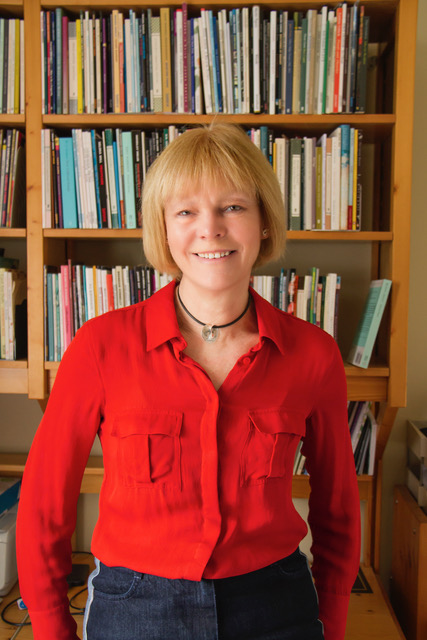
Carole Bromley was selected for the Jerwood/Arvon mentoring scheme when she was in her mid-fifties and says that neither her mentor Mimi Khalvati nor her publishers Smith/Doorstop have ever made her feel old. She is now in her 70s and writes poems about many subjects including family, love, death, literary figures, grandchildren, place (especially York, where she lives), travel, teaching and illness. She has published three collections with Smith/Doorstop, including one for children. She loves the internet and social media which she uses to connect with readers, editors and publishers. She took part in an online writing workshop (Jo Bell’s ‘52’ project) without which, she says, she would never have finished her latest book. She iscurrently working on a sequence of poems about her recent experience of brain surgery as well as a second children’s collection. Twitter @CaroleBromley1
Jessica Mookherjee
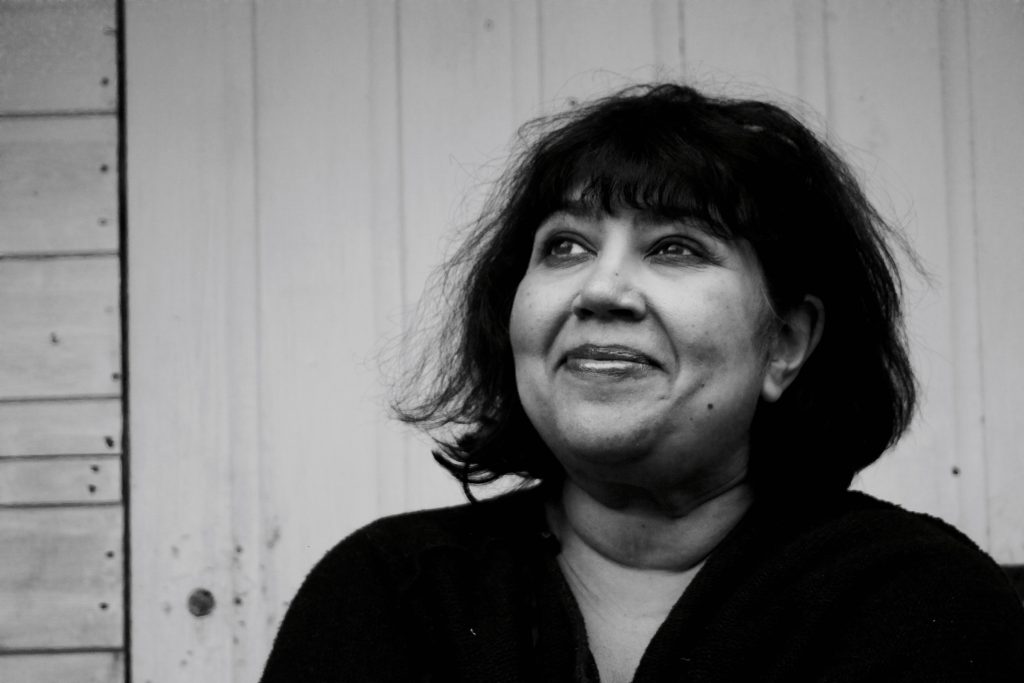
Jessica Mookherjee is in her fifties and has published two poetry pamphlets and a full collection. Jessica regrets not writing earlier but says “I have a little more sense of myself now, what I want to write about and the time and means to give it more attention”. Her second collection, Tigress, will be published by Nine Arches Press later this year. The book includes poems about migration, mental fragmentation, myths spanning different cultures, humans’ relationship with the natural world and responses to trauma. Jessica finds the internet invaluable for research and uses it when she needs to find a poem quickly – “the internet gives me access to a vast poetry emporium”. She admits to sending fangirl tweets to poets Deryn Rees-Jones and Sarah Corbett. Twitter @jessmkrjy
Judy Brown
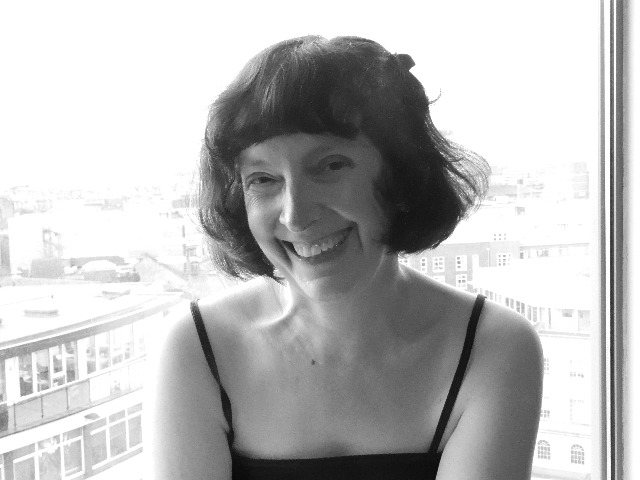
Judy Brown first published in her late 40s. Crowd Sensations (Seren, 2016) is her second collection. “My poems feel like objects made out of how I see things,” she says, describing Crowd Sensations, which was written in London, Hong Kong, and during a year’s residency in Dove Cottage (William Wordsworth’s house in the Lake District) as a “half city and half country book”. Judy uses social media for creative play – “It’s more a resource for making and sharing odd connections than a way of being seen. I find ideas, poems, critical articles, books and images that I wouldn’t come across otherwise. Instagram I use completely for non-verbal creativity (which is quite a relief if you are writing all the time) – making images and enjoying other people’s. Plus, I like seeing the stuff that people make – photographers, painters, knitters, potters – and I use it as a source of book recommendations.” A renowned writing tutor, Judy uses Skype for mentoring and working with poets from the UK and all across the world. Twitter @JudyBrown_
Deborah Alma
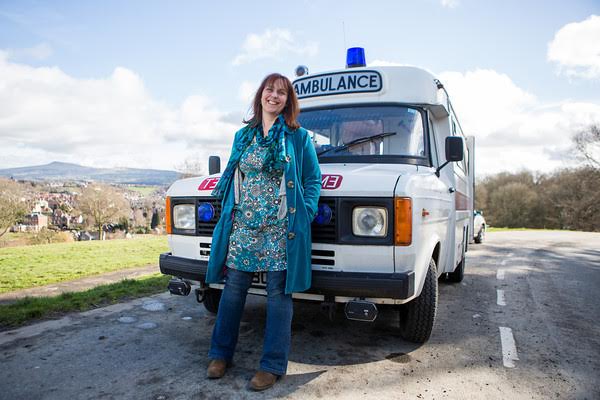
First publishing in her early 50s, Deborah Alma’s debut collection, Dirty Laundry ,was published by Nine Arches Press in 2018. The poems are concerned with “being a mixed-race woman, with class, with ageing and a determination to be strong, boldly sexy and properly part of the world.” As well as working as a poet, workshop leader and poetry editor, Deborah Alma is The Emergency Poet and co-owner of The Poetry Pharmacy, prescribing the right poem for whatever mood or emotion ails her patients. Deborah edited #MeToo(Fair Acre Press, 2018) an anthology of poems donated by over 80 women which raised money for Women’s Aid and which has had readings and panel discussions across the UK. Deborah is particularly grateful to two arts organisations, Writing West Midlands and The Literacy Consultancy, which have supported her writing, and which she describes as being “properly free of ageism, offering support to new writers whatever their age.” Twitter @emergencypoet
Kathy Pimlott
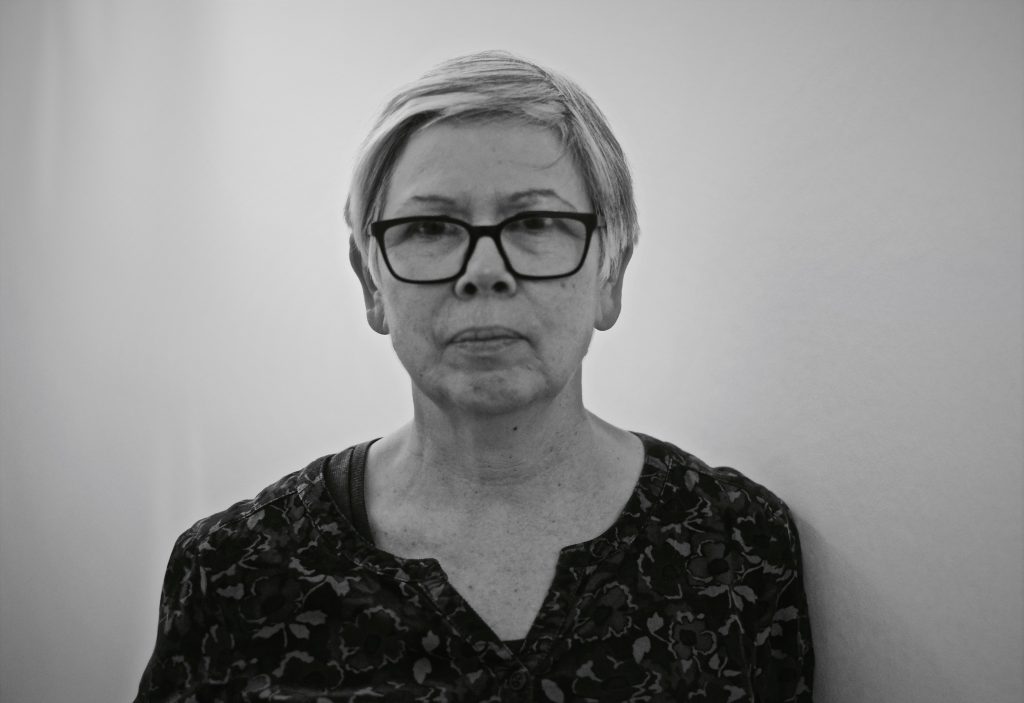
Kathy Pimlott’s second poetry pamphlet, Elastic Glue (The Emma Press, 2019) has just been published. Her first, Goose Fair Night (The Emma Press, 2016) was published when she was 63. Although she wrote in her twenties, Kathy “gave up reading and writing poetry until I was around 50. It took me time to catch up, find what I wanted to say and how to say it. It’s truly lovely to receive recognition through publication, good reviews and sales, but the most important thing for me is doing the writing.” Poems in Elastic Glueare drawn from two specific places, the much commodified Covent Garden area of London, where she lives, and an allotment site. They explore ideas around ownership, change over time, what’s lost and what remains. Kathy states that her poems are sometimes “quite angry but, I hope, leavened by humour, without which how would we bear it?” She says that the internet enables her to read new work by poets she almost certainly wouldn’t otherwise encounter, find new opportunities and be part of an on-line community. “The internet has given me new platforms for my work which, arguably, reach more people than print.” Twitter @kathy_pimlott
L Kiew
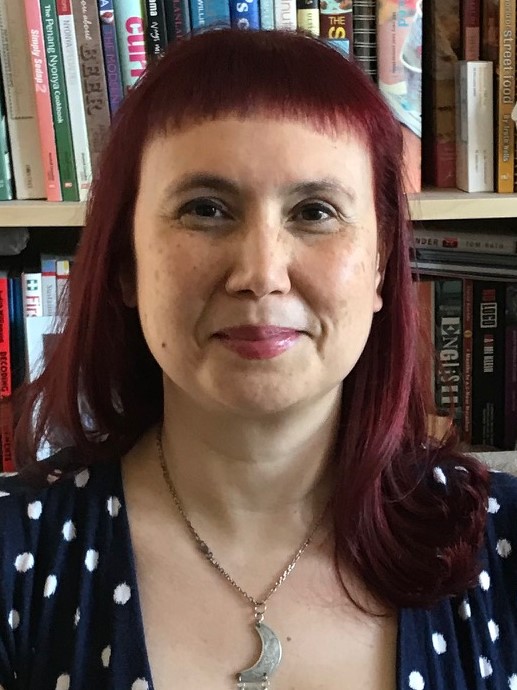
L Kiew’s debut pamphlet The Unquiet is newly published (Feb 2019) by Offord Road Books and contains poems that speak “both in and across languages and cultures, family and hauntings.” L welcomes the possibilities that the internet has created, for instance she found out that Offord Road Books were open to submissions, particularly from BAME writers, via Twitter. “It feels like there has been a real opening up to diversity in publishing and in poetry in the last five years. I remember some of the rejection letters I got when I started submitting to magazines 20 years ago and some definitely gave the impression that I wasn’t the ‘right sort’ because I was not-British and a woman. I’ve published using my initial ever since for that reason as it felt like one way of minimising the biases I faced. I am excited and inspired by the generation younger than me who are doing so well and speak out so confidently on the prejudices they see. I’ve realised that I was brought up to be quiet spoken and pass unnoticed. That makes me angry, both at myself for taking so long to become aware of this and also at the cultures I come from. And I feel it’s important to say I identify as mixed race, a migrant, and an older woman.” Twitter @l_kiew
Robbie Burton
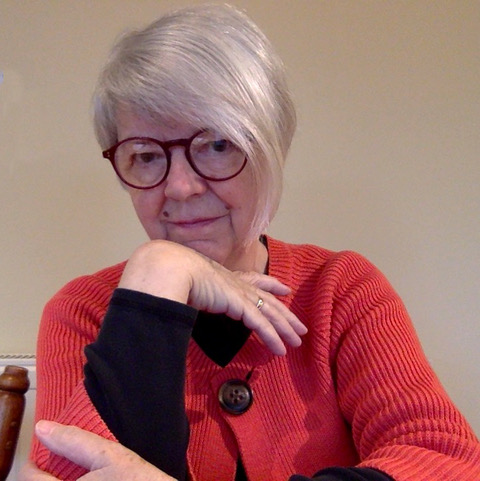
Robbie Burton’s first pamphlet, Someone Else’s Street (HappenStance Press, 2017) was published when Robbie was in her 70s. She writes, she says, about “thedaftnesses and tragedy of the everyday. Alongside people and place, my pamphlet features a donkey and a river, a pianola and a cellar, a clogged u-bend and a man with a mattock. Lightning makes a short appearance too.” Robbie credits Jo Bell’s online group ‘52’ with helping her to evaluate her writing and put her in touch with a supportive poetry community. A last-minute entry to the 2018 Ledbury Poetry Festival Competition was awarded 3rdPlace which means that Robbie will be reading her work at this year’s Festival – “It’s all so exciting!”
Pey Pey Oh
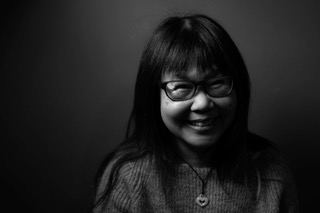
Pey Pey Oh is in her early 50s and her first pamphlet Pictograph (Flarestack Poets, 2018) came out last year. Its themes encompass marriage and identity, stories from her Malaysian culture and travels through China and the USA, interwoven with myth and narrative. Pey Pey uses the internet “to inform myself of events so I can go and listen to poets read.” She also belongs to several online creative communities – “I love #LossLitwrite club every first Wednesday of the month on Twitter and Visual Versewebsite every first week of the month. I’m a photographer on Instagram and so I’m more in touch with the visual communities there, they are a supportive bunch! These communities make me feel less isolated and part of a movement. In a way you’re anonymous. No one knows how old you are or judges you too obviously for it.” Twitter @msiagir
Jane Clarke
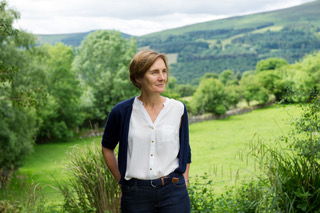
Irish writer Jane Clarke published her first poetry collection, The River (Bloodaxe, 2015) in her early fifties and her second collection, When the Tree Falls(Bloodaxe, 2019) will be published later this year. A pamphlet All the Way Home (Smith/Doorstop, 2019) has also just gone to press. Jane states that a recurring theme in her work “is the depth of our connections to people, place and nature.” Jane believes that the internet and social media have been invaluable to her creative practice “facilitating research, learning and the development of my craft as well as communication with readers and other writers. A poem from The Riverwas tweeted by someone in Edinburgh and read by the editor of a nature journal in Cornwall, who then came over to Wicklow to do an interview for the next issue. A poetry group in Massachusetts read my work online and then invited me over to give a reading. A film of one of the poems in my second collection was shared on Facebook and within a fortnight there were 8,000 views. Because of the internet and social media I can work at home in uplands Wicklow and be part of a national and international poetry community.” Twitter @jane_janeclarke
Panya Banjoko
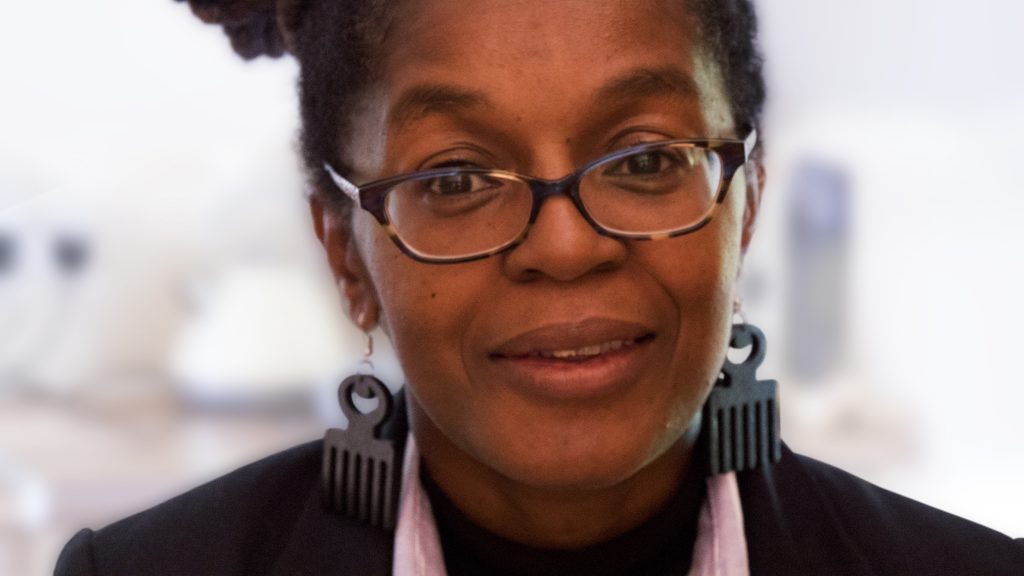
Fifty-something writer, poet and spoken word artist Panya Banjoko is published by Burning Eye Books. Her debut collection Some Things came out in September 2018 although Panya has been writing and performing her work for over 20 years, at the same time as raising a family. Burning Eye describes Panya as “an adversary of oppression and discrimination worldwide and a critic of the current political landscape.” The writer says of Some Things “It’s a collection of tension: between the boxes made for us and the boxes we don’t want to fit into.” Panya Banjoko received the Women in the Arts Poetry Award for Outstanding Achievement in 2008 and the Black Achievers Culture, Music and Arts Award in 2017.
Susannah Hart
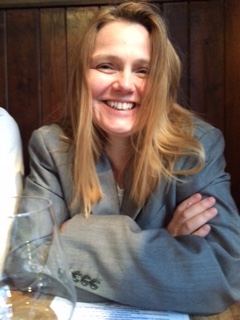
Also in her fifties, Susannah Hart’s first collection Out of True was published by Live Canon in October 2018. Susannah explains that the title of her book (a phrase taken from one of her poems, ‘Loft’) reflects the fact that her work often finds the unusual in commonplace things: “I like to create interesting stories, imagined or real, to make us look at the world around us from a different perspective. My poems can be about supermarkets or breastfeeding, political assassinations or Soviet submarines, rats or the fabric of language. Some poems are short stories, some are imagined events, some are personal recollections retold. I like to think that there is something we can learn or imagine from even the most ordinary experience.” Susannah sits on the board of the poetry magazine Magmawhich uses social media extensively and to good effect and Susannah also finds social media platforms helpful for keeping informed about poetry events and making her feel connected to the poetry community. Twitter @SusannahJHart
Josephine Corcoran’s work as a short story writer and playwright has been broadcast on BBC R4 and performed on stage. A graduate of the Creative Writing MA at UEA, she started writing poetry in her late 40s and her debut collection What Are You After? was published by Nine Arches Press in 2018. She lives in Wiltshire and works as a writer in schools and other interesting places.


